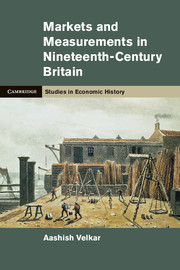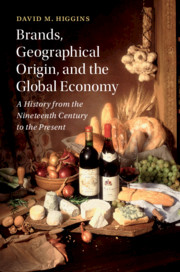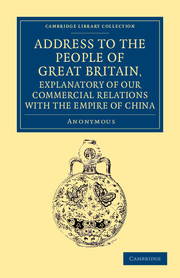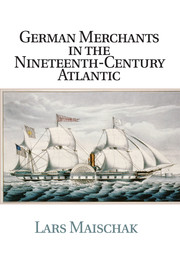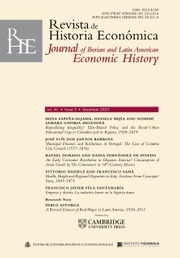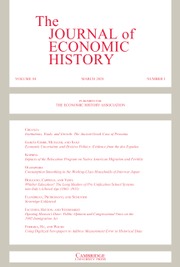Markets and Measurements in Nineteenth-Century Britain
Measurements are a central institutional component of markets and economic exchange. By the nineteenth century, the measurement system in Britain was desperately in need of revision: a multiplicity of measurement standards, proliferation of local or regional weights and measures, and a confusing array of measurement practices made everyday measurements unreliable. Aashish Velkar uncovers how metrology and economic logic alone failed to make 'measurements' reliable, and discusses the importance of localised practices in shaping trust in them. Markets and Measurements in Nineteenth-Century Britain steers away from the traditional explanations of measurement reliability based on the standardisation and centralisation of metrology; the focus is on changing measurement practices in local economic contexts. Detailed case studies from the industrial revolution suggest that such practices were path-dependent and 'anthropocentric'. Therefore, whilst standardised metrology may have improved precision, it was localised practices that determined the reliability and trustworthiness of measurements in economic contexts.
- An economic and social history of measurements in the nineteenth century which demonstrates the fundamental place measurements have in economic exchanges
- Detailed case studies reveal local market practices
- Distinguishes between 'the science of metrology' as a centralised code, and 'the practice of measurement' as a localised activity
Product details
June 2012Hardback
9781107023338
274 pages
236 × 160 × 18 mm
0.52kg
14 b/w illus. 13 tables
Available
Table of Contents
- 1. Markets and measurements: an introduction
- 2. Inching towards the meter: measurements, metrology and reform
- 3. Mensuration and local measurement practices
- 4. Governance and regulation: standardising measurements in the London coal trade (c.1830)
- 5. Competition, cooperation and standardisation: uniform measurements in British wire industry (c.1880)
- 6. Globalisation, commodity grading and quality measurements in nineteenth-century wheat markets
- 7. 'Man is the measure of all things': conclusions and implications.

